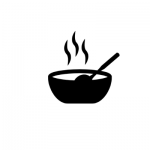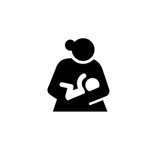
‘People are Apprehensive on Routine Immunisations’
30 May 2020
The ‘Inside Districts’ series launched in April was a one-of-its-kind attempt to capture the experiences of district and Block-level officials, panchayat functionaries and frontline workers, on their challenges and best practices. As India enters the fourth phase of a country-wide lockdown, we went back to some interviewees to understand how their situation has changed. Among them is an ASHA worker in Bhopal, Madhya Pradesh (MP).
As per media reports, ASHA workers and other frontline workers are encountering challenges, including violence against them during door-to-door screening. There are over 4,000 urban ASHAs and a little more than 62,500 rural ASHAs in MP.
The interview was originally conducted in Hindi on 12 May 2020, and has been translated.
Q: Has people’s opinion about COVID-19 being a rich person’s disease changed? Are people more cautious than before?
ASHA: Yes. Earlier only the people who came from abroad were infected but now common people who are around us are also getting the infection. The number of people infected has also increased. All of this has led to more awareness among people. People are taking care of cleanliness now; they are also using masks or cloth to cover their face while going out.
Q: Do you now have proper safety equipment for the duties you perform in the village?
ASHA: We have not received anything from the Panchayat or the Ministry of Women and Child Development. We have bought masks and sanitisers on our own because we have to protect ourselves.
Q: Can ration be availed from any shop or the designated shop? What is the government doing for cases that do not have a ration card?
ASHA: People can buy ration only from the designated PDS shops. The people who do not have the ration card have been identified by the Sarpanch and the secretary. They have been given a slip to avail ration.
Q: Are you provided/promised with any extra monetary incentive for your participation in COVID-19 relief work?
ASHA: No, we are not being provided anything extra. What we are doing comes from the sentiment of service.
Q: Have you received any kind of training on COVID-19?
ASHA: No, but we have received information such as COVID-19 symptoms, raising public awareness, through the Auxiliary Nurse Midwife.
Q: Has the routine immunisation of women and children started? If yes, are you facing any challenges?
ASHA: Immunisation has started but there are fewer beneficiaries now. People are scared and apprehensive about it because of the Coronavirus infection. They think that we might use an already used injection on them.
The ASHA is a health activist in the community whose role is to create awareness on health and its social determinants and mobilise the community towards local health planning and increased utilisation of existing health services. The ASHA works as part of the National Health Mission (NHM) under the Ministry of Health and Family Welfare. The ASHA’s role involves counselling, taking people for referrals, mobilising the community for various health initiatives, and liaising with various officers at the village-level to improve health and nutrition services. The ASHA has to work closely with the Auxiliary Nurse Midwife (ANM) in the health department and the Anganwadi Worker (AWW) – key frontline functionaries for the Ministry of Women and Child Development.





